For centuries, riddles and brain teasers have captivated the minds of young and old. The urge to solve puzzles persists across history and cultures, but why exactly are our brains so drawn to these mental challenges? Unpacking the psychology behind our love of riddles reveals some fascinating insights into cognition, motivation, and the very essence of being human.
The Sweet Satisfaction of Solving Problems
At its core, the appeal of riddles stems from the innate satisfaction we feel when solving problems. Our brains are essentially biological problem-solving machines, designed by evolution to find patterns and derive meaning from complexity. When we successfully figure out the solution to a puzzle, our brain’s reward system lights up, flooding our body with feel-good neurotransmitters like dopamine.
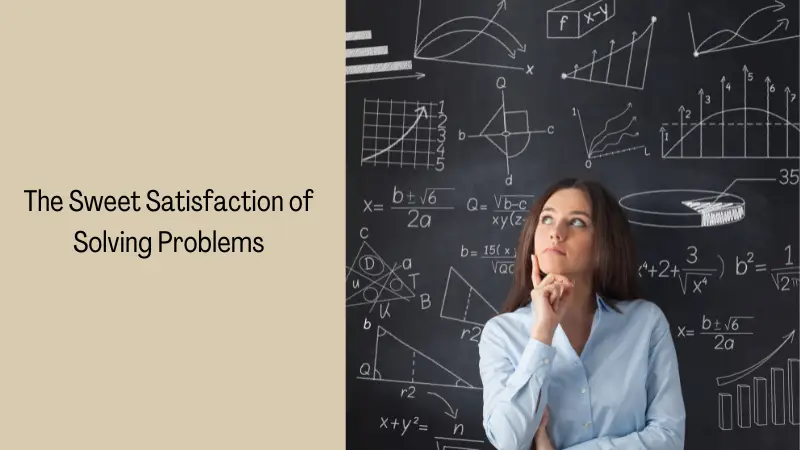
In fact, MRI scans show that solving simple word puzzles activates the basal ganglia – the same pleasure center in the brain that also responds to food, sex, and drugs. The euphoric “aha!” moment when the answer clicks gives us a literal and figurative mental high. As puzzle enthusiast Will Shortz puts it, “With any puzzle, the thrill is in the aha, the ‘I got it!’ moment.” Our brains are addicted to the intoxicating sense of satisfaction that comes from cracking the code.
Puzzles as Play: Exercising Our Mental Muscles
Beyond just providing a burst of dopamine, riddles also serve as a form of play that exercises our cognitive capacities. Puzzles flex our mental muscles in a way that differs from passive forms of entertainment. To work through a brain teaser, our minds must elevate focus, summon working memory, and flex our abstract thinking skills.
Solving riddles requires the orchestration of many interconnected brain areas working in unison – the visual cortex to decode symbols, the prefrontal cortex to devise strategies, and the temporal lobe to access language and meaning. Regularly engaging in this cognitive “workout” strengthens neural connections and may even help delay age-related cognitive decline. Essentially, pursuing puzzles helps to keep our minds sharp.
The Motivation of Uncertainty (and the Allure of Potential Failure)
Another key psychological factor that makes riddles engaging is the element of uncertainty. Unlike other problem-solving tasks where the path to the solution is clear (such as a math equation), riddles introduce ambiguity. Our minds love incomplete information and the lack of structure primes our drive to create order out of chaos.
Riddles tantalize us with the potential for failure, but the risk is what makes successfully solving them so rewarding. Puzzle enthusiast Prasanna SR notes, “The thrill lies in the quest for an unknown solution rather than in having it presented at the outset.” Overcoming uncertainty brings a rush of agency and competence.
In fact, the allure of uncertainty explains why puzzle video games like Tetris continue captivating people. There is pleasure and drama in confronting the unknown and using our wits to master it.
A Playground for the Imagination
Unlike logical or mathematical puzzles, riddles also activate the imagination. To decipher the puzzle, we must envision various mental models, see alternative meanings, and identify metaphors. Riddles invite us to enter a literary world unconstrained by reality, where sly foxes speak and cats and dogs get married.
Letting our imaginations run wild gives our rigid adult minds the liberty to return to a more child-like, divergent form of thinking. Regularly exercising our imagination keeps this capacity from atrophying over time and also sparks creativity. Escaping literal thinking provides a refreshing form of escapism and mind expansion.
Riddles Build Vital Verbal Skills
Many riddles playfully use the flexibility and nuances of language itself to conceal and reveal meaning. Effective riddle-solving relies on a sensitivity to syntax, context, metaphor, irony, and shades of semantics. Riddles help tune our linguistic attention and grow verbal fluency.
Puzzles based on puns force us to appreciate how the subtlest language tweaks can shift meaning: Why should the number 288 never be mentioned? It’s two gross! Groan-worthy as they may be, these linguistic twisters sharpen our communication skills.
Exposure to riddles in childhood aids vocabulary growth and builds reading comprehension. A study of 4th graders who were exposed to riddles for a year showed significant gains in verbal intelligence and reading test performance compared to peers.
Shared Joy: The Social Benefits of Puzzles
While we often think of puzzle-solving as a solitary pursuit, riddles also bring significant social benefits. Riddle enthusiasts often gather in clubs to share their passion, drawn together by a common interest. Online puzzle forums give people across the globe a place to collaborate, build community, and collectively marvel at an elegant riddle solution.
Teachers tap into kids’ natural curiosity about riddles to build engagement. Riddles help introduce cultural references and norms while allowing children to show off their smarts. Families bond over working through puzzles together. Water cooler riddles give coworkers a fun diversion to socialize over.
Teasing our minds with riddles isn’t just an intellectual pursuit – it builds rapport, forges connections, and provides a playful shared experience. There’s joy in collectively working to overcome a mental challenge.
Mastering the Unknown
Ultimately, solving puzzles allows us to flex our intellectual muscles and experience the pure, child-like joy of mastering the unknown. Riddles serve up bite-sized mental challenges that provide bursts of satisfaction. This sense of competence taps into our deepest need for self-realization and actualization. Being clever isn’t a trivial desire – it’s part of feeling fully alive.
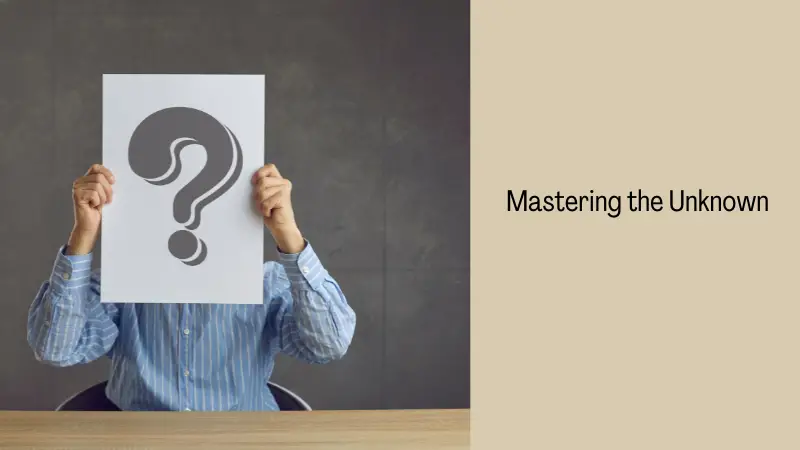
Our minds love and need the stimulation that riddles provide. While technology offers many passive forms of entertainment, engaging with puzzles provides active nourishment for our brains. Far from just being a distraction, feeding our appetite for riddles and imagination is a vital part of nourishing a healthy mind.
So next time you encounter a brain teaser, embrace the call to adventure! Recognize the inner light that illuminates when you successfully crack the puzzle. Let conquering riddles remind you of your incredible capacity for reason and creative cognition. Our passion for riddles reveals that being human means joyfully tackling the mysterious using every mental faculty we possess.
Frequently Asked Questions About the Psychology of Riddles
Are some people just naturally better at solving riddles?
While some people may have more initial cognitive strengths, the ability to solve riddles well can be improved through practice. Skills like flexible thinking, verbal fluency, working memory, and creativity can all be developed to enhance riddle-solving prowess. Mental exercises that improve executive functioning will help hone skills critical for puzzles. An avid interest in riddles also provides motivation to get better.
Do puzzles and riddles help keep the mind sharp in old age?
Yes, regularly engaging in mentally stimulating activities like riddles seems to provide benefits for cognitive health as we age. Challenging the brain with novelty forces it to build new connections and improves mental reserves. Using it or losing it applies – exercising the brain helps maintain mental acuity.
Are some kids just naturally better at solving riddles?
While individual differences in cognitive strengths exist, the ability to solve riddles develops with exposure over time. Young children love being challenged with age-appropriate brain teasers and grow these skills with practice. Regularly engaging kids with playful mental challenges boosts motivation and proficiency.
What makes a riddle or puzzle satisfying to solve?
Often the most satisfying puzzles combine an “aha” moment with the resolve of initial uncertainty. Clever wordplay, elegant tricks, and satisfying metaphors that create an “of course!” feeling upon solving also make riddles rewarding. A sense of intimacy from sharing the riddle and gauging peers’ responses heightens engagement too.
Do people become less interested in riddles as they age?
Interest in puzzles is often lifelong and can even increase in retirement as people have more time to indulge in hobbies. As certain cognitive skills decline with age, solving riddles can provide satisfaction from overcoming mental obstacles. Riddle clubs among older adults provide social benefits too. All ages appreciate the sense of satisfaction that solving riddles provides.
Conclusion
Our shared love of riddles reveals the universally human urge to exercise our mental faculties and gain hard-won insights. Puzzles tap into our deepest yearning for intellectual challenge and growth. Unpacking exactly why our brains find riddles so rewarding highlights our drive to create meaning, connect, and continually self-actualize through playful cognition. Riddles will continue intriguing and delighting problem-solvers across all generations. The basic desire to meet the mind’s appetite through imagination, language, and logic endures.


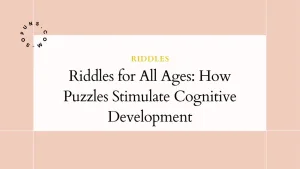
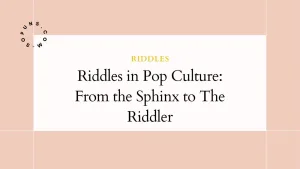
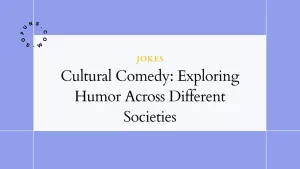
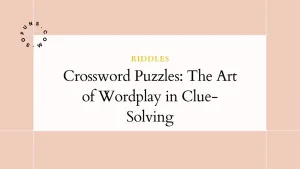
No Comments